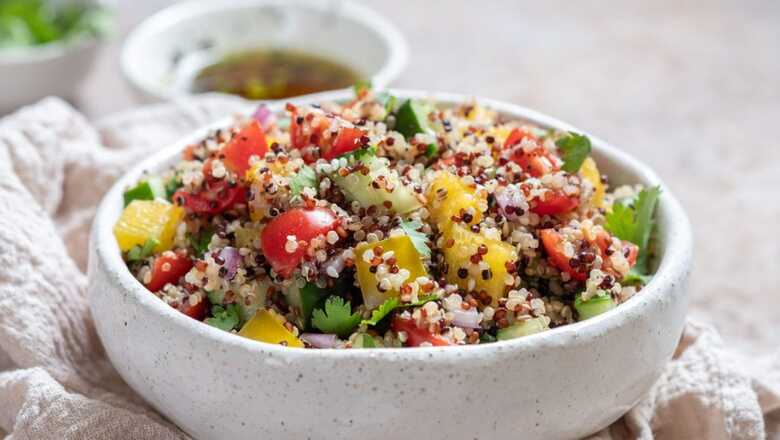
views
In the fast-paced world we live in, maintaining a healthy lifestyle is often considered an all-or-nothing proposition. However, the key to a truly healthy diet lies in adopting a balanced approach that focuses on incorporating nutrient-rich foods, plenty of fluids, and a good dose of fiber. One crucial aspect of this approach is the effective prevention and management of constipation, a common digestive issue that can significantly impact overall well-being. Amreen Shaikh, Head Dietitian, Wockhardt Hospitals, Mumbai Central explains the role of diet in constipation.
The Balanced Plate: A Symphony of Nutrients
Eating healthier doesn’t mean depriving yourself or adhering to rigid dietary restrictions. Instead, it’s about making informed choices that benefit your body in the long run. A cornerstone of this approach is to include a variety of foods in every meal, ensuring a diverse range of nutrients essential for overall health.
Fiber plays a pivotal role in maintaining digestive health, and incorporating both soluble and insoluble fiber into your meals is crucial. Soluble fiber, found in fruits like apples, oranges, and bananas without skin, as well as vegetables like potatoes and sweet potatoes without skin, has remarkable benefits. It delays gastric emptying, regulates blood sugar levels, and helps control cholesterol levels.
On the other hand, insoluble fiber, present in fruits with skin, green leafy vegetables, and vegetables like cauliflower, helps prevent constipation by providing roughage for easy passage of stools. Including whole grains such as whole wheat flour, brown rice, legumes, and oats in your diet ensures a well-rounded intake of both soluble and insoluble fiber.
Incorporating whole fruits into your daily diet, preferably seasonal ones, is a delicious and effective way to boost your fiber intake. Aim for at least two servings of whole fruits each day to provide your body with essential vitamins, minerals, and antioxidants. Opt for fruits with skin, like apples and papayas, as the skin adds an extra dose of insoluble fiber.
Adequate fluid intake is often underestimated in its importance for overall health. Consuming at least 2 liters of fluids throughout the day is crucial for proper digestion, nutrient absorption, and waste elimination. Water, herbal teas, and fresh fruit juices are excellent choices to stay hydrated and support your body’s natural processes.
A holistic approach to health involves not only what you put into your body but also how you maintain it. Regular physical activity, such as daily walks and gradually increasing the intensity of your exercise routine, promotes overall well-being, including optimal digestive function. Exercise stimulates the muscles in your digestive tract, helping to move food through the system efficiently.
A Closer Look at Fiber-Rich Foods
Understanding the sources of soluble and insoluble fiber can guide your food choices for optimal digestive health:
Soluble Fiber Sources:
- Fruits without skin: apples, oranges, bananas, muskmelons, dates, peaches, and dried prunes.
- Vegetables: potato and sweet potato without skin, dudhi, turai, and sweet.
Insoluble Fiber Sources:
- Fruits with skin: apples, papayas, bananas.
- Vegetables: cauliflower, green leafy vegetables, potato with skin, karela, and the skin of root vegetables.
- Whole grains: whole wheat and wheat bran, barley, millets, and popcorn.
- Nuts and seeds: almonds without skin, raisins, flax seeds, and isabgul.
In conclusion, adopting a balanced and varied diet that includes plenty of fiber, fluids, and regular physical activity is essential for promoting digestive health and preventing constipation. Remember, healthy eating is not an all-or-nothing proposition; it’s a gradual journey towards nourishing your body inside out. By making informed choices and embracing a holistic lifestyle, you can enjoy the benefits of enhanced well-being and vitality for years to come.


















Comments
0 comment